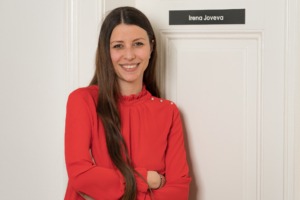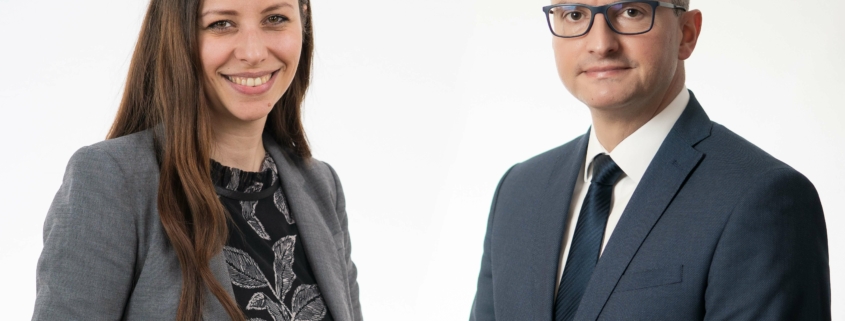We continue our series of interviews in local media on topical issues, this time for a Posavje newspaper.

Irena Joveva (foto: Matjaž Kosmač)
The pandemic has proven the importance of a strong and good public health system.
That is true. While we were initially confronted with some existing shortcomings of the public health system, it soon became clear that it is vital for enabling a smooth coordination and cooperation of international health institutions, which is crucial in crisis management. This is precisely why it is essential to create the European Health Union, which will ensure sufficient financial investment in Member States’ public health systems, coordination, the maintenance of high standards of care and, last but not least, greater public health system resilience. We need a large network of public institutions to provide adequate health care for all European citizens, and I am therefore pleased that we have overcome the tendency to centralise health care and increased the financial input into decentralised public health systems.
But the health system also needs to be adequately staffed. This is not a problem that is unique to Slovenia, is it?
Unfortunately, the whole EU is facing a shortage of qualified staff in health care. These are physically and mentally demanding professions that require a lot of knowledge, specific skills and continuous training, and unfortunately most of them are underpaid. The financial compensation for this type of work is extremely important as it greatly influences the decision of young people who are still in the process of choosing their career. However, it should be stressed that it is not enough simply to increase the salaries of the healthcare professionals who already receive the highest pay as it is – in this case doctors. The arrangement needs to be done systematically, for the entire sector. Nor should we forget the highly relevant staff working in care homes, who are also part of the health system. At the EU level, we have mechanisms in place to encourage young people to choose such careers, but the most effective and fastest way to do this is through the state itself.
In Posavje, some energy-intensive companies were already facing rising energy prices before the current war in Ukraine. Will the current crisis be the final nail in the coffin of these companies, or the tipping point for a full green energy transition?
The current crisis, following Russia’s invasion of Ukraine, will be, or has already been, a major blow for businesses, which are facing ever higher energy costs. The price of gas was already at an all-time high before the Russian aggression, and now it has risen even further. According to the EU legislation, the most expensive energy source for electricity generation, currently gas, also determines the price of electricity. However, there is no need for the current situation to be the final nail in the coffin of these companies. State aid rules are being adapted at the EU level, and this is where the state should urgently come to the rescue to make it easier for companies to cope with the increased costs. Secondly, the electricity price market could be reformed so that the price is not set according to the current gas price. These are short-term measures, but in the long term, of course, there is a need for an accelerated green transition and for increased investment in renewable energy sources, which is not only necessary from the point of view of environmental sustainability, but also from the point of view of the energy self-sufficiency of Slovenia and the EU.
Marjan Šarec: “Energy independence and self-sufficiency will be crucial”

Marjan Šarec (foto: Matjaž Kosmač)
We are soon to hold the most important elections in independent Slovenia. We will decide what kind of country we want to live in, which is why a high voter turnout is extremely important. Until recently, we thought that the main campaign issues that would occupy us the most would be public education, quality and accessible public healthcare, higher wages for all and affordable housing. But the war in Ukraine has brought forward new issues such as energy independence and self-sufficiency, which are of inestimable importance for any country. It is my sincere wish for Posavje that we continue to develop the Brežice General Hospital. Time has shown that the ideas of some politicians who, 20 years ago, in the name of economic streamlining, advocated the centralisation of hospital care and the closure of smaller hospitals, including Brežice, were completely misguided. The period of the COVID-19 epidemic has confirmed that a decentralised public health system is much more flexible and resilient, and the Brežice hospital played a very important role in this respect as well. I would like to see you continue such good work – which includes the creation of additional suitable accommodation for acute patients, an increase in the nursing hospital capacity from 30 to 50 beds, the purchase of an MRI scanner, etc. Let me recall another challenge that lies ahead – the inaccessibility of care in care homes. We cannot be proud of the situation where some elderly citizens are forced to seek a solution for living out the final years of their lives in a neighbouring country. We will have to deal with all of this. In a sincere and realistic manner, without populist and lip-service promises, without empty and grandiose statements. This is how we approach work and this is how we intend to work after the elections on 24 April, when we are deciding on our common future.




Leave a Reply
Want to join the discussion?Feel free to contribute!